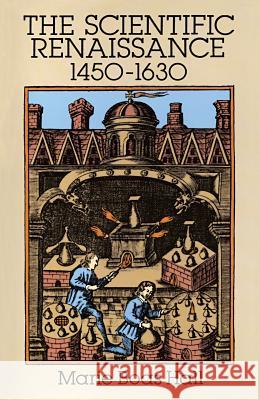The Scientific Renaissance 1450-1630 » książka
The Scientific Renaissance 1450-1630
ISBN-13: 9780486281155 / Angielski / Miękka / 2011 / 376 str.
While scientific inquiry has its roots in both Far Eastern and Indo-European cultures, the revolutionary ideas that made modern scientific achievements possible occurred initially in Europe. This stimulating, illuminating, and thoughtfully presented work explores the early stages of this scientific revolution, beginning with the rediscovery of Greek ideas in the mid-15th century and culminating with Galileo's brilliant "Dialogue on the Two Chief Systems of the World" in 1630.
Noted historian of science Marie Boas Hall first gives a general account of scientific thought in the mid-1400s, then examines the Copernican revolution and the anatomical work of Vesalius and his contemporaries, the impact of chemical medicine and the efforts of the Swiss physician and alchemist Paracelsus. Also here are insightful discussions of Harvey's discovery of the circulatory system, the work of Kepler, the effects of Galileo's telescopic discoveries, and other topics. A series of accompanying illustrations among them a Ptolemaic map, examples of Renaissance engineering, and portraits of Francis Bacon, Tycho Brahe, Vesalius, Kepler, and Galileo enhance this scholarly and informative work.
A valuable reference book for students of the history of science, "The Scientific Renaissance 1450 1630" is "good, sound, academic stuff . . . interesting even to those for whom it is not required reading." "New Statesman.""











